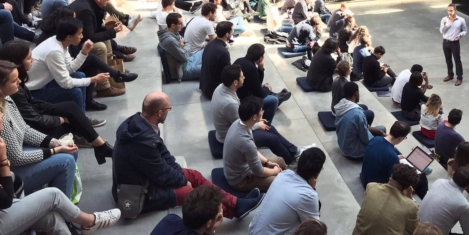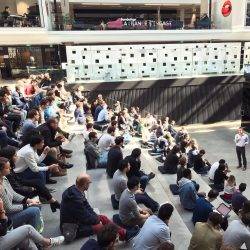October 19, 2018
Smart spaces and the other top technology trends for 2019
 Technology researcher Gartner has highlighted the top strategic technology trends it believes organisations should be aware of in 2019. Gartner defines a strategic technology trend as one with ‘substantial disruptive potential that is beginning to break out of an emerging state into broader impact and use, or which are rapidly growing trends with a high degree of volatility reaching tipping points over the next five years’. One of the interesting points to note is the inclusion of the physical workplace yet again, as we highlighted in our recent feature on the trends shaping office design.
Technology researcher Gartner has highlighted the top strategic technology trends it believes organisations should be aware of in 2019. Gartner defines a strategic technology trend as one with ‘substantial disruptive potential that is beginning to break out of an emerging state into broader impact and use, or which are rapidly growing trends with a high degree of volatility reaching tipping points over the next five years’. One of the interesting points to note is the inclusion of the physical workplace yet again, as we highlighted in our recent feature on the trends shaping office design.







































October 16, 2018
Law firms are finally embracing the agile workplace
by Simon Pole • Comment, Workplace design
More →